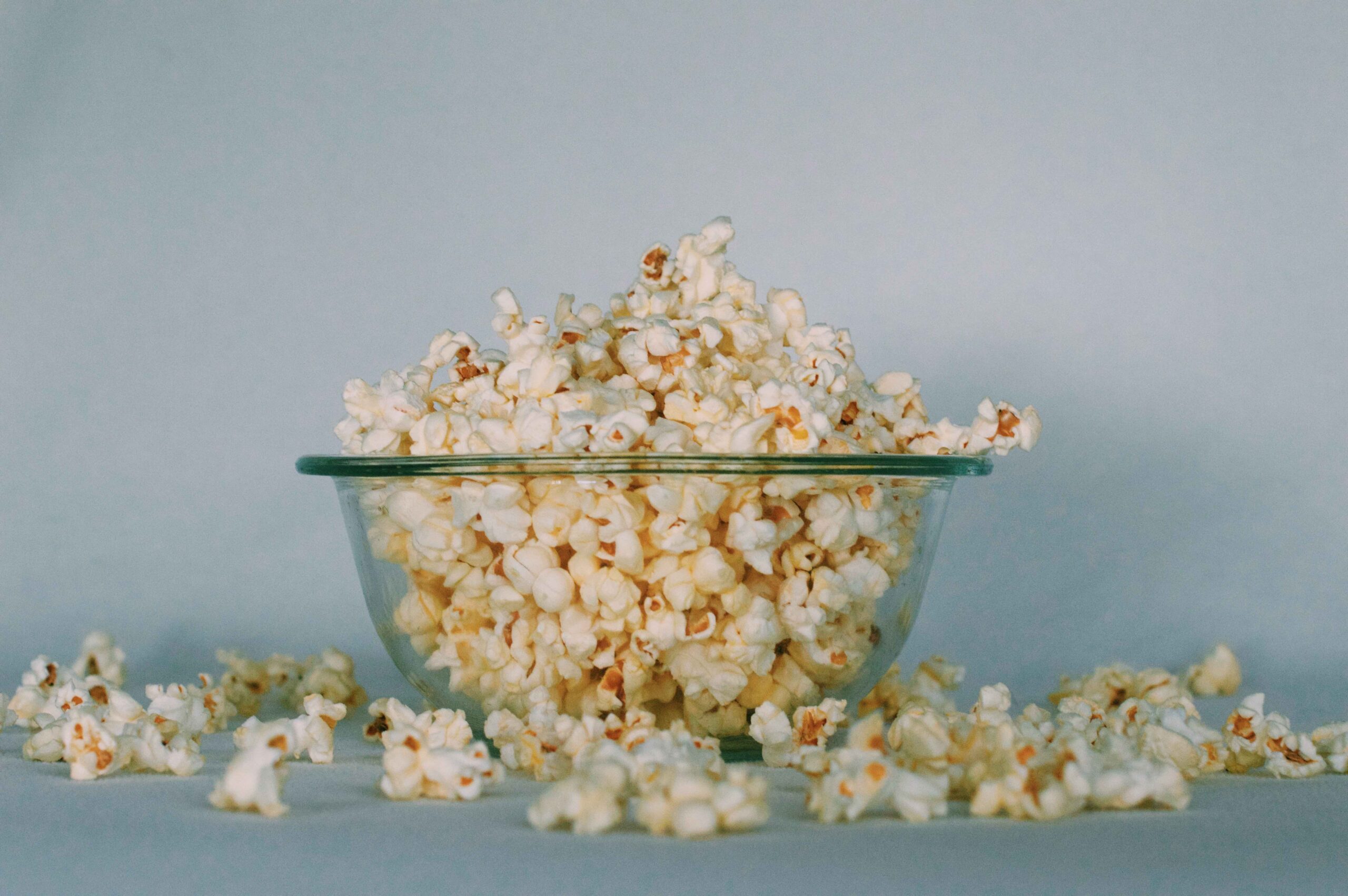
I recently revealed popcorn as one of my go-to snacks; it’s low in calories, filling, tasty and fun to eat…perfect snack credentials! But is popcorn healthy?
On a scale of Bad, Better and Best when it comes to snack choices, it certainly doesn’t fall into the Bad Category, however, neither does it fall into Best. But let me qualify this.
What is popcorn and is it different from regular corn?
The corn we eat as popcorn is different from the corn kernels we eat on the cob. Popping corn is a particular variety (amongst many) of corn that has the ability to pop. When it’s heated to a high temperature; there’s a little amount of moisture inside the kernel that expands and turns to steam, creating enough pressure for the starch to burst. This intense pressure causes the kernel to explode, effectively turning it inside out so you end up with a fluffy textured snack.
So, is popcorn healthy? Let’s take a look at the nutritional profile
Essentially Popcorn is a whole grain that has been popped. Thus, as a whole grain, it is naturally healthy:
- It is high in fibre, so slows down digestion so releasing sugars into the blood more steadily
- It contains good levels of vitamins and minerals including calcium, iron, zinc and magnesium
- It provides protein, essential for building and repairing cells and body tissues
- It contains antioxidants (especially in the hard outer covering) to help fight harmful free radicals in the body keep inflammation under control
- Whilst it is indeed a carbohydrate, it is high in fibre and contains very little fat, salt or sugar. So even if you’re eating a large portion, you’re not eating a loaded snack.
- With that nutritional profile, this certainly makes popcorn a great snack choice with good health benefits.
- Good fibre intake not only slows down the release of sugars but it is essential for healthy digestion, providing prebiotics for healthy gut bacteria, thus helping to promote and maintain healthy gut flora. Good levels of healthy bacteria are essential for overall health.
- Its insoluble fibre helps keep your digestive tract moving and prevents constipation.
- Its fibre content also helps to manage weight, snacking on something that keeps you fuller for longer will avoid the temptation of reaching for sweet snacks that are high in calories and very little nutritive value.
- As a high fibre food, as part of a balanced diet, it can help to reduce the risk of developing heart disease and type 2 diabetes.
However, that can quickly change depending on what you’re adding when you prepare it and it can quickly turn from a super healthy snack to a very unhealthy choice.
It’s easy to make popcorn healthy when it’s air-popped at home; it’s naturally low in calories with around a typical 30g portion providing just around 120 calories (without added fat or sugar). Plus, it’s filling; one study compared the satiety after eating popcorn vs potato crisps and found that 15 calories of popcorn were as filling as 150 calories of crisps.
Shop bought varieties, however, are a different ball game! Most varieties bought in the cinemas contain a very high amount of sugar and salt, let alone unhealthy fats and artificial flavourings. As well as loading up the calorie count (in some cases up to a whopping 1,400 calories and over 5g of salt for a large bucket!), these ingredients also present a burden on the body as it has to detoxify and remove these nasties.
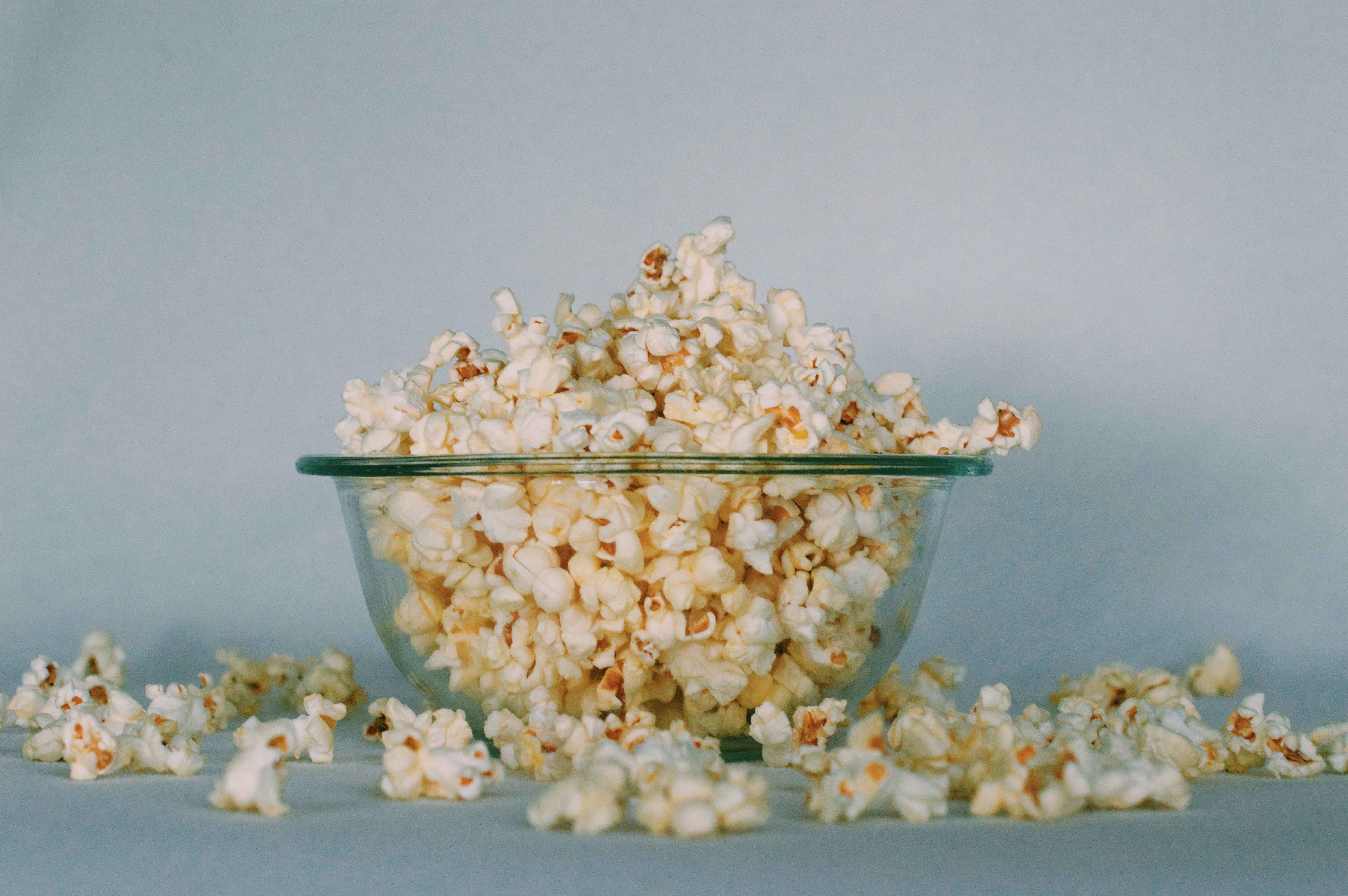
What about microwave popcorn?
I have my reservations as to the quality of ingredients used to flavour the popcorn, the unhealthy fats used as well as the stability of the chemicals found in the packaging when these are heated to high temperatures.
Whilst there is no specific evidence directly linking the microwave popcorn bags, one chemical, in particular, PFOA that is used in trace amounts in these bags has been linked to cancer.
As popcorn is so easy to make from scratch, why take this risk? There is no need to opt for these highly processed, potentially damaging alternatives and as such, I would avoid pre-packaged microwave popcorn in bags.
How to make popcorn healthy without compromising its health benefits:
Popcorn is easy to prepare! You will need to buy simple, plain popcorn kernels and then you can make it in a popcorn machine, in a saucepan on the hob or in a covered bowl in the microwave.
- Place ½ cup popcorn kernels in a pan or bowl, with 3 teaspoons of rapeseed oil (or 1tsp coconut oil or butter) and ½ teaspoon of salt.
- Cover and heat for around 3mins. After around 1 minute, the kernels will begin to pop. Continue until the popping almost stops. (In the microwave, this can take around 2mins in total)
- Remove from the heat and pour into a serving bowl
- You can add your own flavourings either by topping it with your favourite spices at the end or by adding it before cooking. Eg.
- Cinnamon
- Paprika
- Cumin
- Chilli/Cayenne
What to avoid when making popcorn
- Avoid using olive oil as this has a low smoke point and will damage at high temperatures. Fats with a high smoke point such as butter, ghee, rapeseed oil, coconut oil or avocado oil (although this is expensive) are ideal.
- Try not to avoid a high salt intake and limit the salt you add. Adding it before cooking ensures it is spread out more so you can enjoy an overall salty taste.
- Consider organic popping corn which isn’t always much higher in price than non-organic but can offer the potential health benefits. It will not have the pesticide residues or other toxic residues and it will not have been genetically engineered, as genetic engineering is not allowed in the production of certified organic foods.
Bottom Line
Yes, it’s a great snack! With a low calorie and high fibre content that provides good satiety, you’re likely to eat fewer calories, making it a good snack choice to keep your weight in check.
However, it isn’t calorie-free and eating it in moderation is key!
READ MORE: 4 foods I reach for when I’m feeling stressed or low


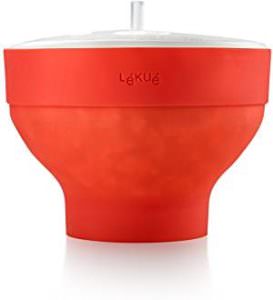
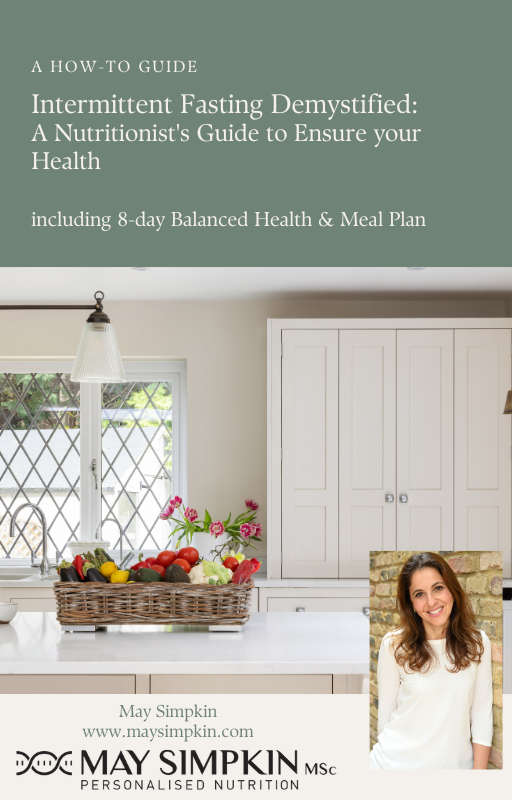
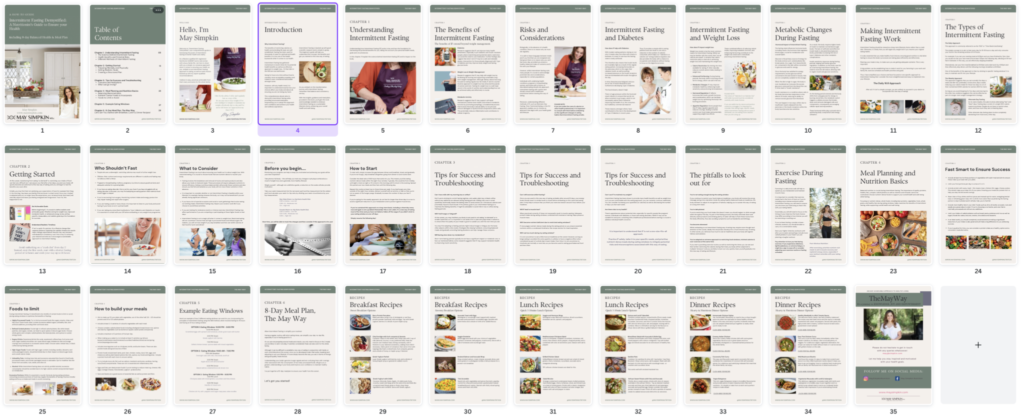


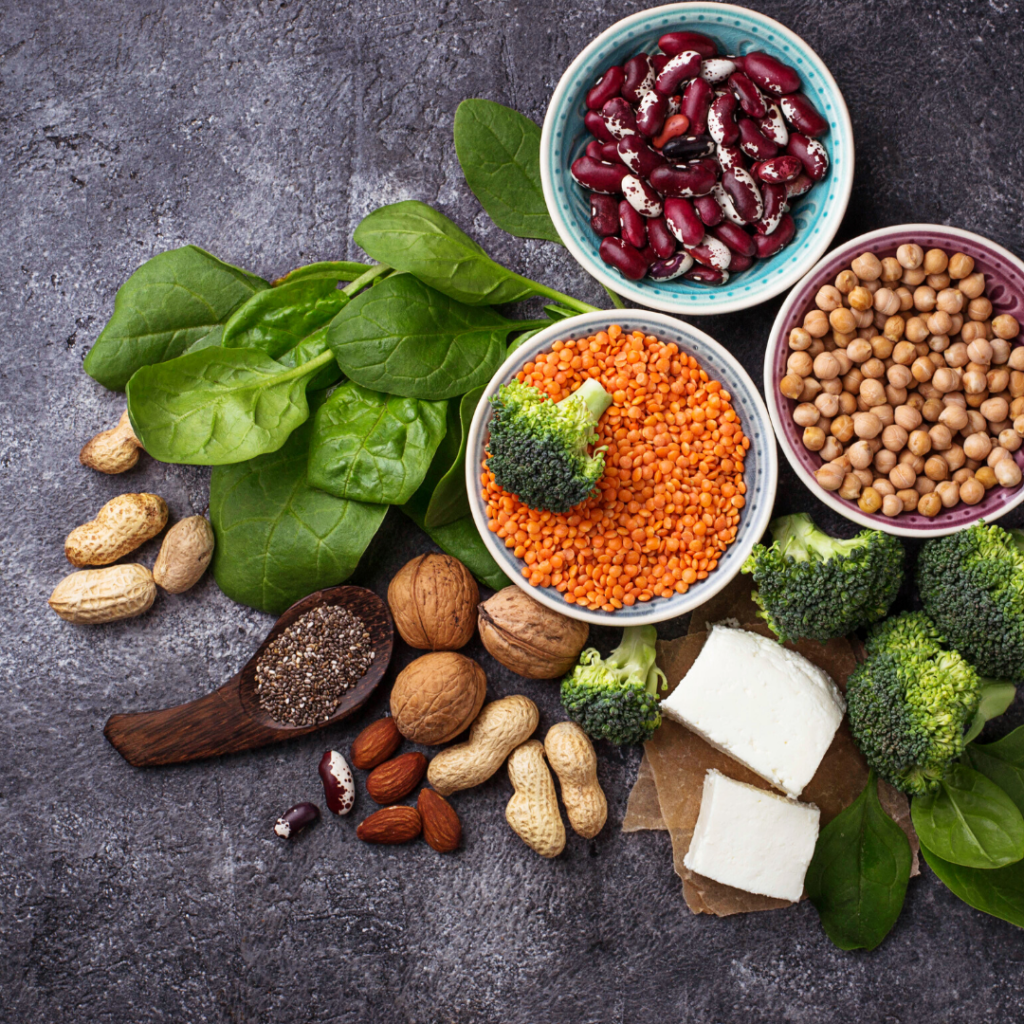
0 Comments